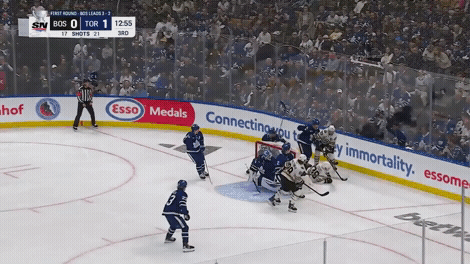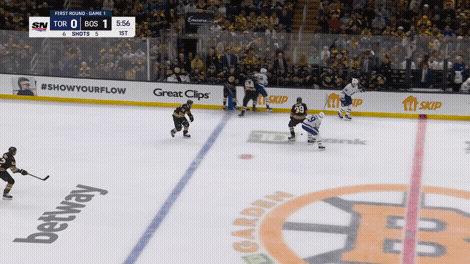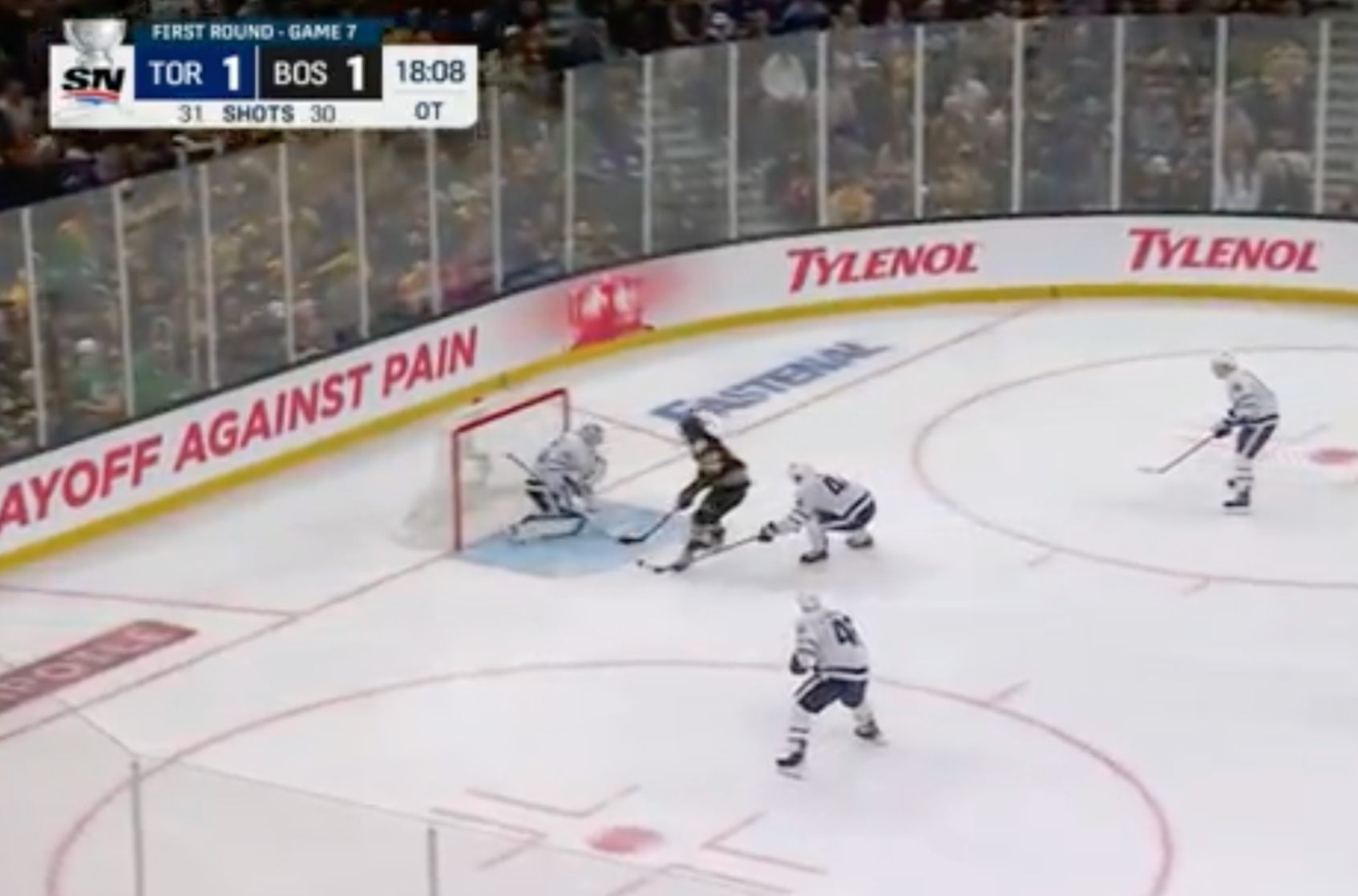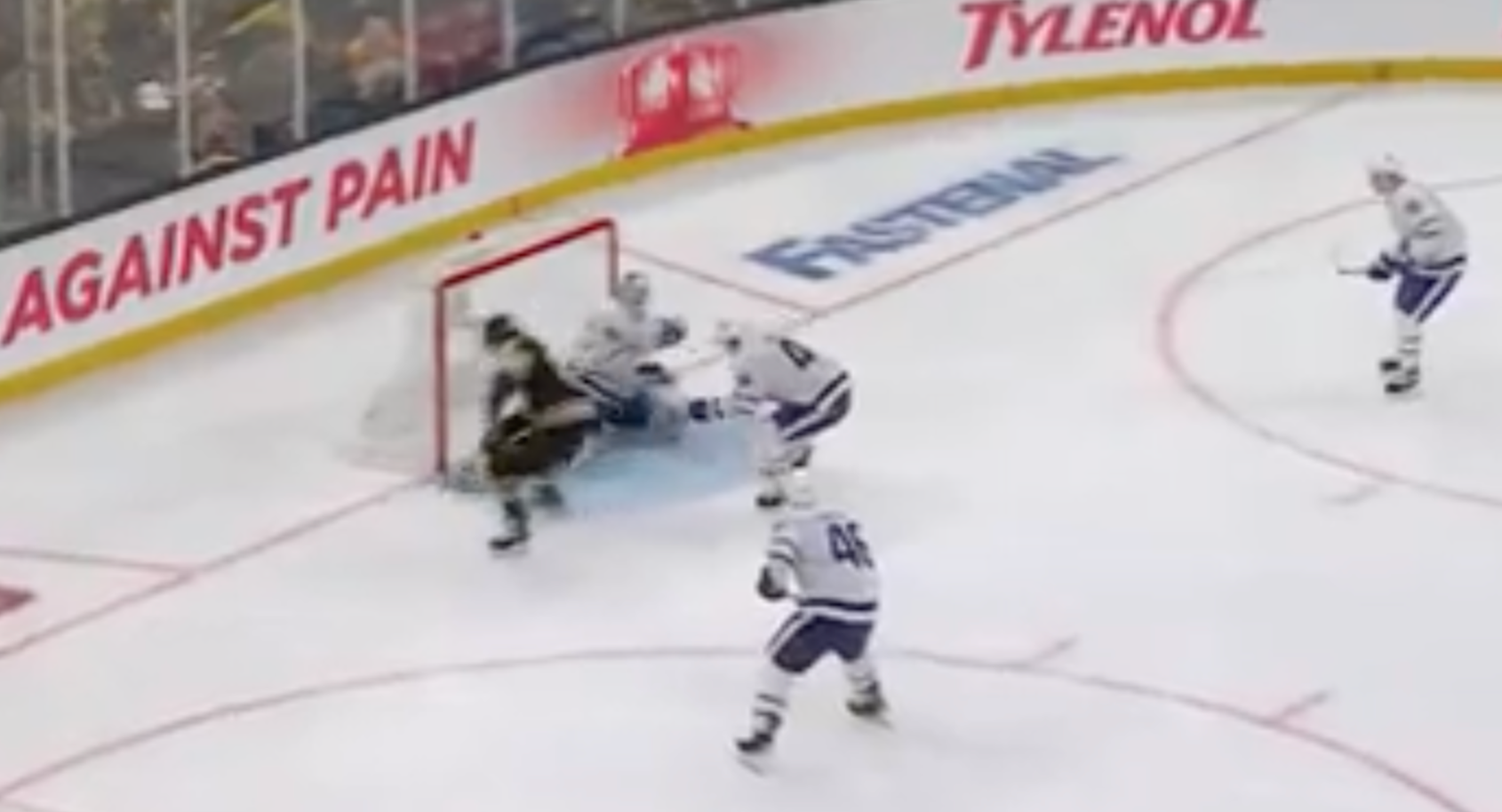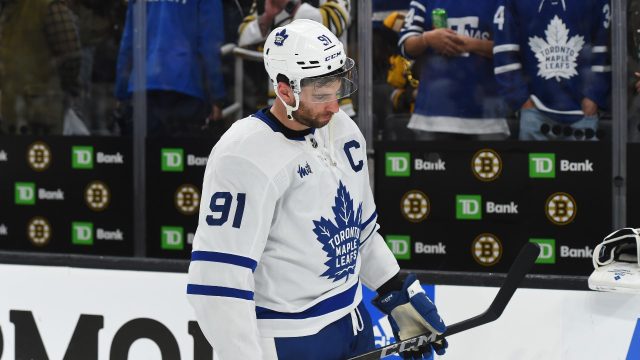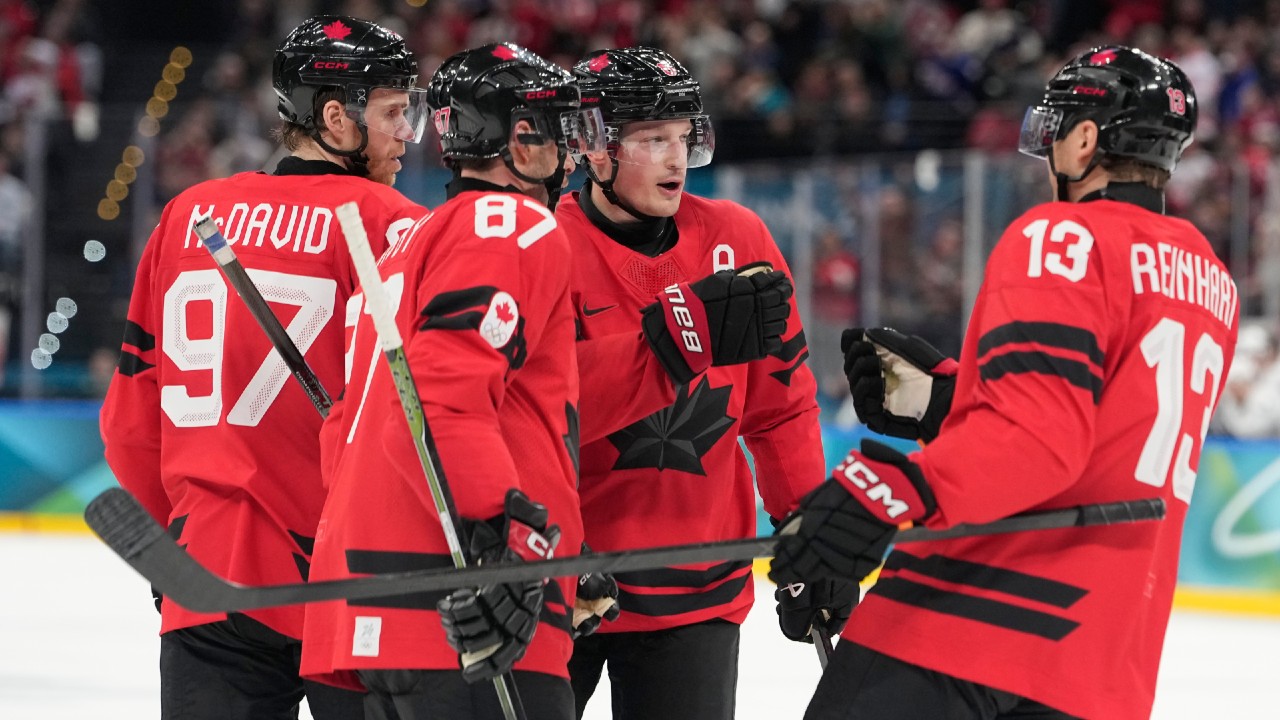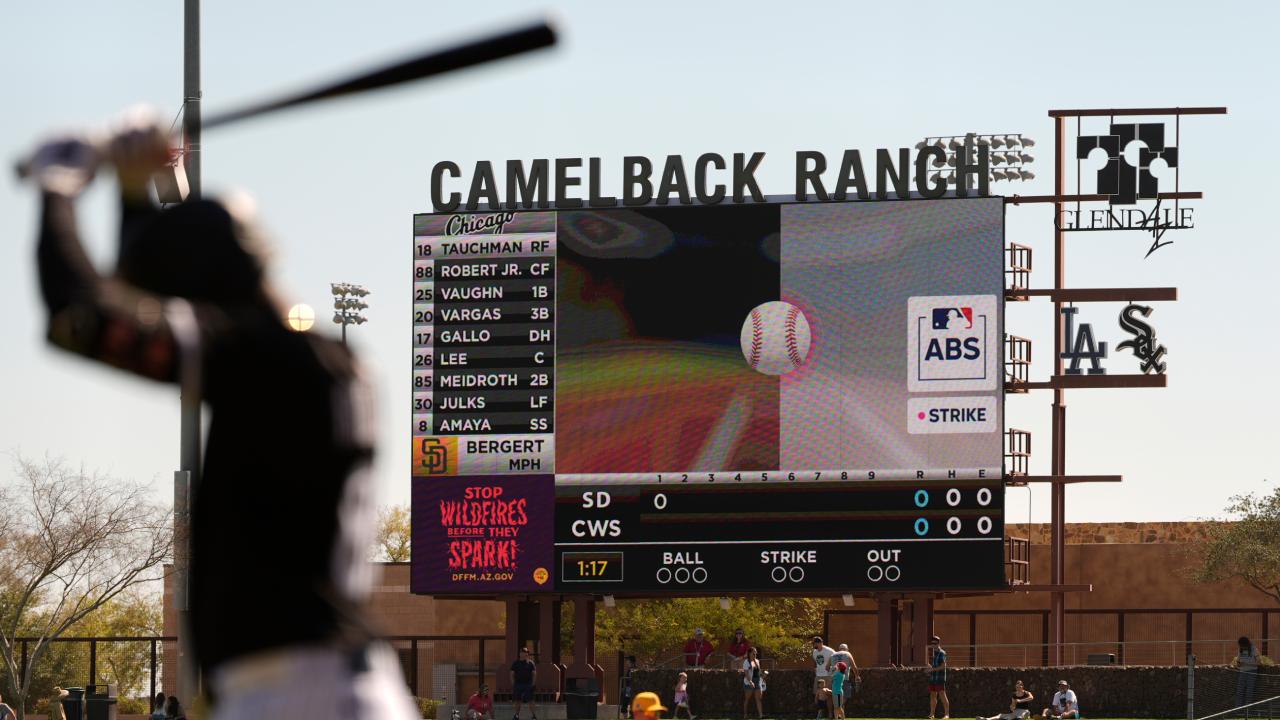
You can’t successfully treat a patient without an accurate diagnosis, which means that as much as Leafs fans are eagerly thinking about the future today – in particular which heads may roll – there needs to be some reflection on what just happened.
So, allow me one more dive into the actual hockey that just wrapped up, and what that may mean for the future, as the autopsy continues.
The team didn’t score
The Leafs have been held to two goals or less in 13 of their past 14 playoff games, scoring a whopping three in the other. Frankly, that is insane. The team averaged 3.63 goals per game in the regular season, second most in the league, which means they were more likely to score four than three in any given game this (regular) season.
William Nylander ended up scoring three in four playoff games, each of which was a massive goal for the Leafs. In Game 7, Sheldon Keefe used him for over two minutes more than their next-most used forward. In fact, Nylander averaged 1.5 minutes per game more than any other Leafs forward in the series. He once again rose to the occasion.
Auston Matthews had an all-world Game 2, single-handedly driving a Leafs road victory before getting sick and injured and then trying to trudge through Games 3 and 4. In Game 7, he almost certainly shouldn’t have been playing, but was given 17 minutes of ice time, led Leafs forwards in shot attempts, and set up a massive goal to give them the lead in the third. You could give him an incomplete grade for the series, but with four points and good underlying numbers in trying circumstances, it would be tough to say Matthews didn’t pull his weight.
No offence from Marner or Tavares
I hate to be flippant here, but this is really about Mitch Marner. When John Tavares signed his extension, it was assumed that the back-end of the deal might not be pretty and, at this point, he’s no longer a player who can drive play. He can still put some pucks away if put in the right spots, but his ho-hum, semi-disappointing performance in this series was closer to expectation than letdown at this point. (That doesn’t mean it’s not a problem, it’s just that they weren’t banking on him thriving this late in the deal.)
In the playoffs, the Leafs’ all-world chance creator just… doesn’t create enough chances. Over the past three NHL regular seasons combined Marner is just outside the top-10 in points, sitting 11th with a per-game average of 1.27. But in the playoffs this season his one goal and two assists in seven games was an average of 0.43 points per game, miles short of what Leafs fans have come to expect from him.
My issue with Marner’s play is what changes about it in the playoffs. He’s an east-west player and always will be, which is fine (or even good), but in the regular season he also puts defences on their heels by taking off, challenging them, and making them second guess what he’s going to do next. In the playoffs, his first thought with all plays seems to be east-west, frankly even south, and instead of challenging the opposing team, he resigns himself to not even trying to get to the middle or up-ice.
Matthew Knies had maybe the best playoff series of any Leafs player because he constantly challenged the opposing defence, pushed to the crease, and said “stop me.” Those defences often do, but it’s hard work, it taxes them, and Knies ended up barrelling into the Bruins crease multiple times. It even earned him two goals.
When you don’t challenge forward, it looks like hesitation and often results in just giving the puck to the other team like a “punt.”
In the last of the non-impactful moments below, Marner doesn’t even think about taking it to the crease for a shot or stuff play. I’ve chosen not to show bad plays here, but just a couple of fleeting seconds where Marner’s instincts were to move away from advancing the puck hard, which I think reflects why he goes quiet in the playoffs. Too much sideways and backwards.
(Sportlogiq had him with 52 turnovers in the series, a high number – sixth-most among forwards in the layoffs – but it’s not terrible as a percentage of his total touches.)
Marner too rarely challenges the opposing defence. He is apparently 6-feet and 175 pounds, but seems smaller in the playoffs.
Leafs D corps was terrific, except the guy they needed to be great
The only way this series goes to overtime of Game 7 is because the Leafs’ defence group was absolutely excellent. They blocked tons of shots, laid the body, and made it a nightmare for Boston to get to the net. Jake McCabe took a step towards being a top-pair type of defenceman with how he can play mean playoff hockey, but also handle the puck, much like other coveted names (a la Jake Muzzin or Mattias Ekholm). He’s not in that class maybe, not yet anyway, but he was in this series.
Joel Edmundson was mean but composed with the puck, and involved offensively. Simon Benoit was a warrior, and Ilya Lyubushkin may have gone a seven-game series without making a significant mistake.
But Morgan Rielly seemed tired, not involved in the offence in the slightest, and to me, was backed so far off on the defensive side of things he wasn’t forcing the Bruins to make any decisions with the puck.
What’s stranger still is that although he had these bad gaps, he oddly wasn’t able to use that to even give himself an advantage on retrievals, which was relevant on the winning goal in Game 7. SportLogiq had Rielly’s percentage of “defensive zone denials with exit” sixth among the Leafs’ defencemen.
Look how far back he is into the Leafs zone on some of these plays.
Toronto was a goal short of a series win and didn’t get any offence from Rielly this time around. I think those are connectable dots.
What to do with injury prone players
Bobby McMann was the type of powerful, upside depth the Leafs had desperately been lacking in previous years. He’s fast, hard on the forecheck, and can shoot it in the net when he gets a chance.
And then he just wasn’t there for them, despite there being no obvious injury-causing collision to the eyes of fans. It’s not his fault, but it stunk that he wasn’t available.
One of the reasons for McMann’s slower ascent to the NHL (despite all those tools) had been an inability to stay healthy, which reared its head at the worst possible time.
Joseph Woll is the same. Injuries have regularly left him unavailable, and that showed up at a terrible time, too.
Edmundson gave the Leafs everything he had, and was both available and great, but when trying to re-sign him it’s worth considering this has been an issue in the past for him as well (and he did miss games with Leafs dealing with injury before the playoffs).
Injuries can be bad luck, but there’s no denying some players are more consistently available than others. It matters.
The Leafs are going to have Woll back, and they’ll hope he stays healthy because when he is, he’s a legit NHL starter. They’ll also have to find a good “1B” for when he’s out, because they can’t go back to Samsonov. He was extremely “fine” at times, in that you can’t point a finger at him and say “that’s the reason the Leafs lost.” But on the chance Pastrnak got in overtime, Samsonov barely touched the puck until it was deep in the crease.
I’m going to guess most goalies poke or just stuff this touch pretty quick?
It’s actually baffling how the puck slid between Samsonov’s pad and the post. It must’ve gone under his literal skate blade. It’s still not in the net in this frame below.
The Elias Lindholm short-side floater that ripped back the Leafs momentum in Game 7 is a positional save: if you’re big and square it will just hit you.
And further to any of this, there was barely a stretch of games this season that you could point to and say Samsonov is an “NHL starter” except the very chunk of games that pushed the Leafs to start him in the playoffs. I don’t see any way they have him back, barring him accepting a role as a clear back-up on the cheap.
Sheldon Keefe’s future
When I watch a game, I’m typically watching the often-predictable shape of how one type of play leads into the next. A retrieval into a breakout, into the neutral zone, into a zone entry, into a forecheck, into a backcheck, into neutral zone defence, into a zone entry against…and on and on, back and forth.
In those regards, I don’t think any coach in the league is outright better than Sheldon Keefe. His teams are well-structured and clearly have a solid plan that they execute.
But coaching is a process business only for about two-thirds of the league; it isn’t for perceived Cup contenders, who are results or bust. And so, you have to win, and the Leafs haven’t won in the playoffs.
Add the dagger that their power play went 1-for-20 in a series they lost by a goal, and the coach is in big trouble.
I think Keefe will have success somewhere else — many coaches thrive in their second job — but I don’t think they’ll give him another crack at it here in Toronto. And that’s probably the right call.
Luck
Like when a dirty player throws a borderline hit, nobody wants to have the conversation about whether the hit was bad or accidental. That player has lost the benefit of the doubt. Likewise, the Leafs have lost the right to complain about extenuating circumstances when things don’t go well.
But boy…
Nylander missing three games to ocular migraines after missing only one game combined the past three years, coupled with Matthews playing 81 regular season games but then being compromised (or gone) for five of seven playoff games, combined with Woll shockingly missing Game 7… what a set of bad bounces. And yet another alternate reality “what could have been” series.
But it doesn’t matter, of course, as there’s only one reasonable conclusion at this point.
“Run it back” has run its course.



